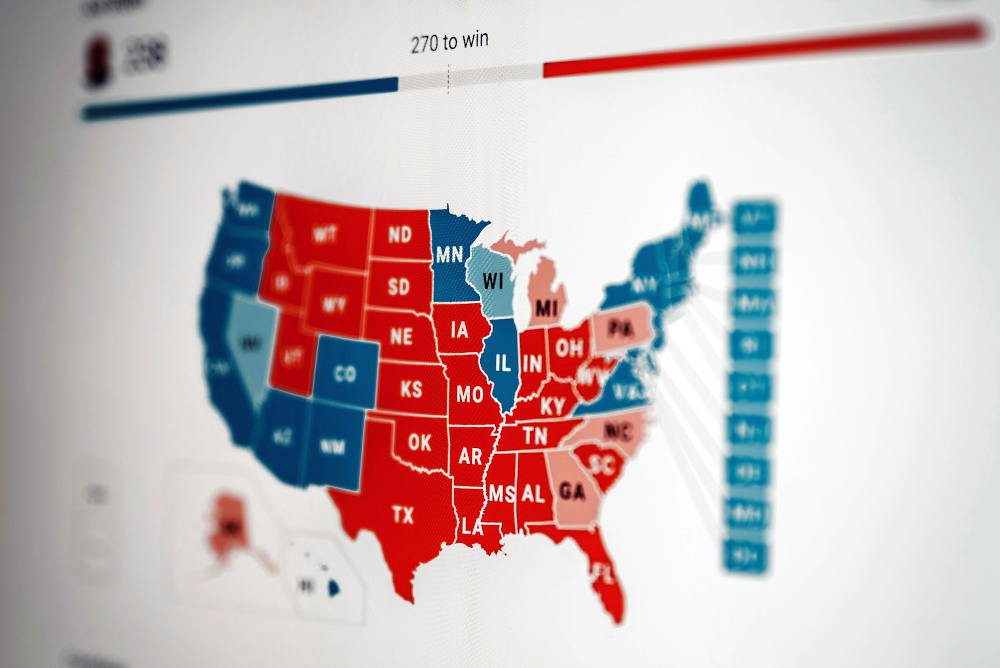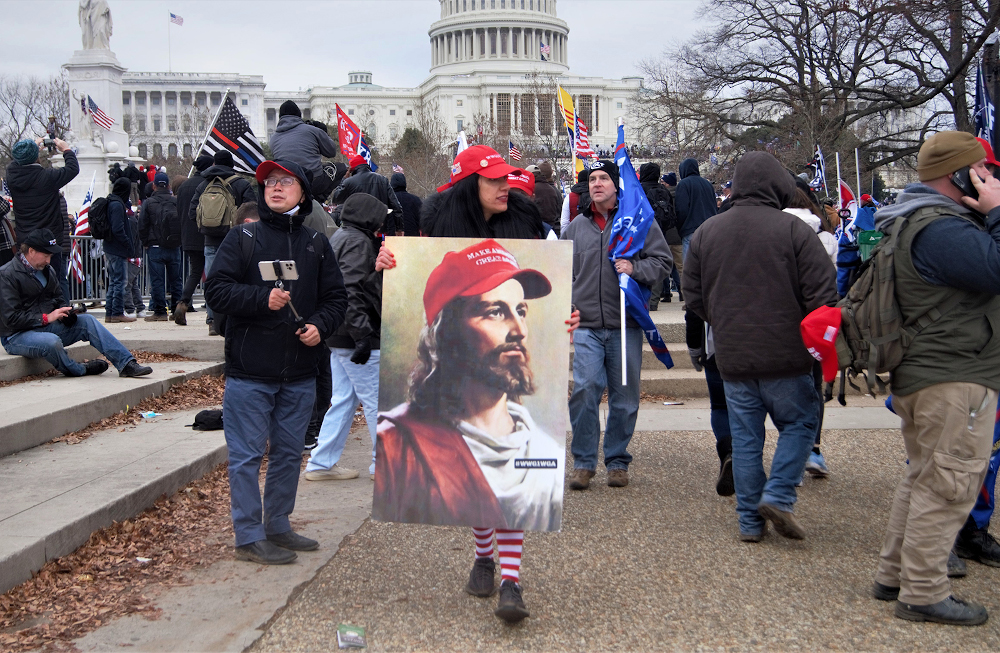
An image of a map of electoral votes needed to win the presidential election ((Unsplash/Clay Banks)
The next election cycle and its long season of political fervor is about to descend on us. As Black theologians, we believe that now is the time when we must speak with urgency about white Christian nationalist sentiment in this country.
Already, some politicians are advocating for display of Christian symbols on government property, restoring prayer in public schools and calling on voters to Make America Great Again. In doing so, they frame their advocacy with biblical references and implicitly or explicitly assert a connection between being a patriotic American and being a good Christian.
The most common use of biblical and religious language is to justify anti-LGBTQ+ bills and legislation restricting gender-conforming treatment for trans youth. These arguments also bespeak an appeal to white Christian nationalism over egalitarian democratic principles.
Advertisement
Christian nationalism is not new. One can trace its roots to the Roman emperor Constantine’s conversion in 312 that forged a seemingly unbreakable link between Christianity and power. Not long before, Christianity had been a powerless, sometimes persecuted religion. With state backing, it began its evolution into a powerful political and social force that often persecuted others. This revolution laid the foundation for the Christian nationalism we have seen throughout Western history.
In the United States, Christian nationalism has taken on a particularly pernicious corollary. Whiteness, a social construct of systemic, structural, cultural and ideological power and preference, awards further privilege to those who are raced white. Christian nationalism manifests in this country as white Christian nationalism, which holds that America was intended by God to be a privileged place for those of Anglo-Saxon/European descent.
From this nation’s founding, Christianity has been a canopy for power, legitimizing the exceptionalism of the Puritan idea of a “city on the hill,” theological justifications for slavery, down to the sacred cover it has provided for white supremacism and xenophobic sentiments up to the present day.
Any version of Christianity that wittingly or unwittingly colludes with dominating and oppressive power betrays the very core of the Christian faith tradition: the cross. The cross symbolizes a faith tradition defined by speaking truth to, and resisting, unjust and subjugating power. The crucifixion was a sign of Jesus’ opposition to such power. It indicated his commitment to a future where the sacred dignity and personhood of every single human being is valued and respected, without exception.

The image of a white Jesus is carried during the Jan. 6, 2021, insurrection at the Capitol. (Creative Commons/Flickr/Tyler Merbler)
Any version of Christianity that wittingly or unwittingly colludes with dominating and oppressive power betrays the very core of the Christian faith tradition: the cross.
White Christian nationalism, meanwhile, stands in direct opposition to this defining act. White Christian nationalism as it is at work today provides a Christian narrative for stigmatizing the most vulnerable — the poor, immigrants and trans youth. It is at work anytime sacred symbols are used to exclude and dehumanize people because of their race, ethnicity, gender identity, sexual expression or religion.
It is most explicit in the proclamations and policies that maintain that this nation is meant to be a “Christian nation.”
Most insidiously, white Christian nationalism is sustained by the silence of faith leaders and “mainstream” Christians, far too many of whom have not spoken out. As the Rev. Martin Luther King Jr. said in his 1966 address at Illinois Wesleyan University, this generation of Christians “will have to repent not merely for the vitriolic words and actions of the bad people, but for the appalling silence of the good people.”
And so it is time to speak up. We must be clear and unequivocal: White Christian nationalism is a betrayal of what it means to follow the one who was crucified. At stake is the integrity of Christianity itself. White Christian nationalism not only imperils a country that promises “liberty and justice for all,” it compromises the identity of a faith tradition defined by its mission to create a future where all human beings are respected and protected as the sacred creatures that they are.
We therefore call upon our Christian siblings, especially our white siblings in the faith, to speak forthrightly and denounce the sin that is white Christian nationalism and thus to truly partner with God in building a more just future for all.








